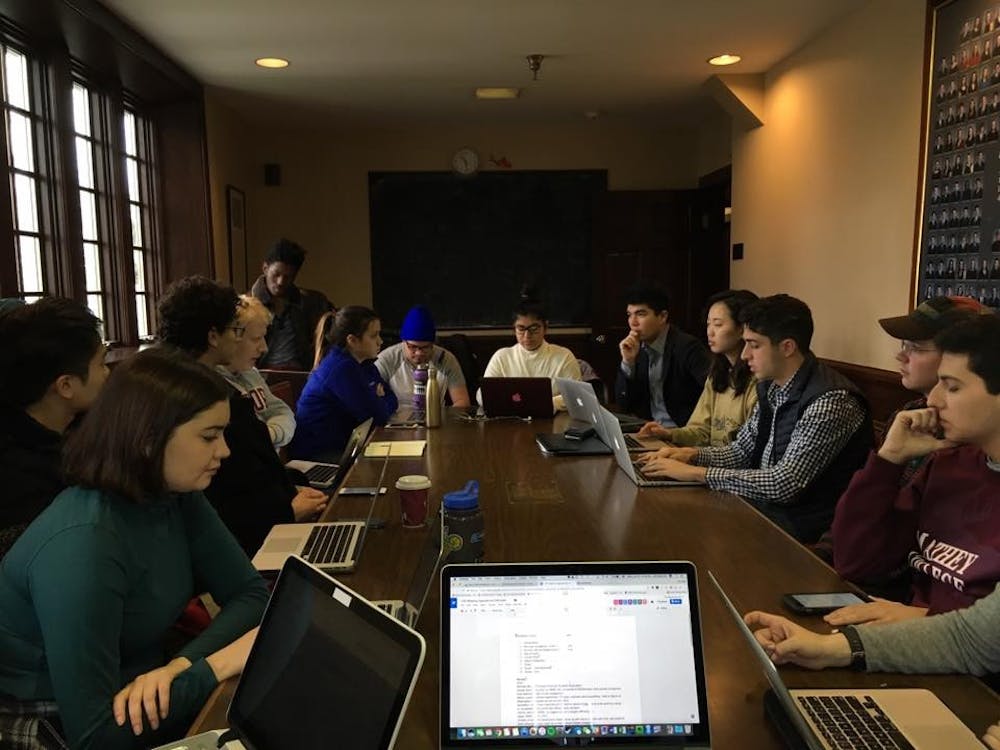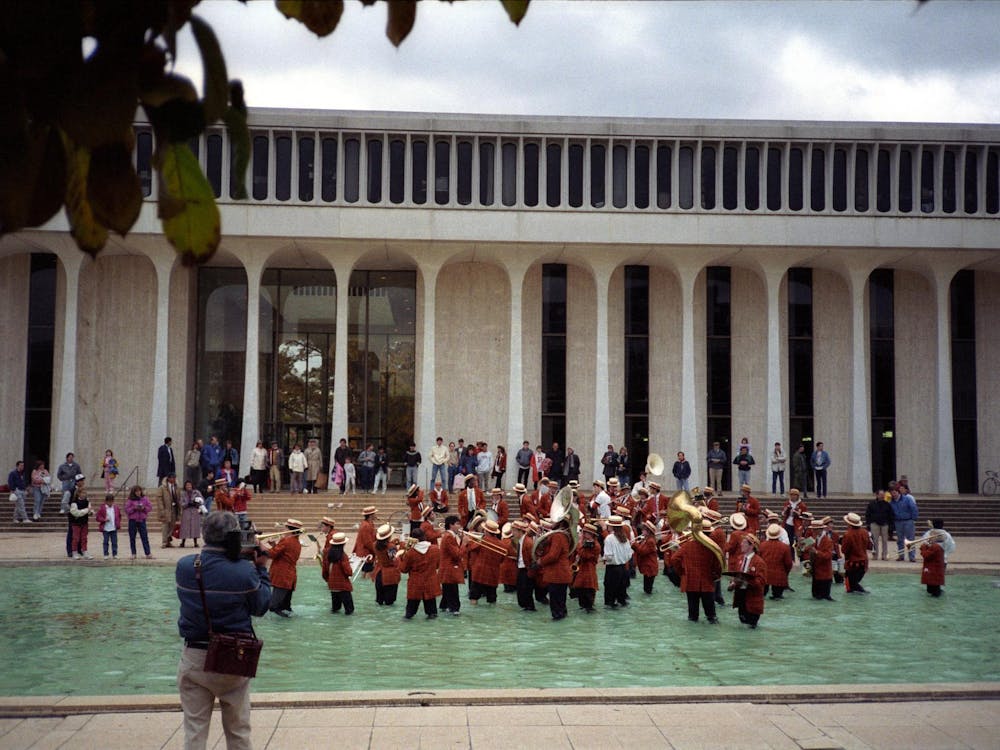University students are organizing a response to executive orders on immigration signed by President Donald Trump on Wednesday. Trump moved to begin building a border wall between the U.S. and Mexico and to crack down on U.S. cities that protect undocumented immigrants — so-called "sanctuary cities."
A student-led response to these policy changes is being established by Nicholas Wu ’18, Diego Negron-Reichard ’18, Christin Park ’18, and other student leaders from minority groups on campus. Their goal is to form an intersectional organization called Princeton Advocates for Justice to serve as a platform for students who want to discuss, advocate, and plan for the protection of human rights.
Wu is a senior columnist for the Daily Princetonian.
“We really formed after the executive orders, that's really what pushed us over the line to get formed as a group,” Negron-Reichard said. “Our mission statement is largely just reacting to these crises as they go. What we hope to be for campus is a coalition where different groups from whichever aisle of the political spectrum can come together to have a discussion, and have an agenda or plan going forward.”
The response to specific executive orders that Negron-Reichard and Wu began planning on Wednesday night quickly developed into a plan to form a more permanent student group.
“It did come up as an organic reaction to current topics, but we plan to be, in the long-term, a coalition of students that anyone can join and to have that space for advocacy and activism on campus, which is something we see that's lacking currently,” Negron-Reichard said.
Park stated that the group was formed as an immediate response to recent Trump policy decisions.
“I felt pretty discouraged by the [Trump's recent] election and the news about his executive orders. I used to be part of Amnesty International back in high school, and one of the things we would do is write letters to authorities just to express our views,” Park said. “Last night, I was speaking to Nicholas Wu and I was saying that maybe it would be good to create a larger-scale version of this, because I know many students are feeling discouraged and they don't really have an outlet.”
“After we had the idea, we started contacting the heads of minority groups on campus and had a meeting today,” she added.
“The meeting itself was a way for us to feel out where we were, what we want to accomplish in the near future and in the long term, and what were our organizing principles and mission statement,” vice president of the Latino Graduate Student Association Brandon Hunter GS said.
"It was really encouraging and a really refreshing sight to see so many people from different organizations come and join together to try and make a difference,” added Princeton Latinos and Amigos media co-chair Sarah Prieto '19.
The group’s current goals are to be officially recognized as a campus organization bythe Office of the Dean of Undergraduate Students and to hold a day of action in February.

According to Negron-Reichard, the day of action is “a day where we can do phone banking or write to Congressmen to voice our concerns and try to use our power as constituents to move public policy.”
“We want to put some kind of Day of Action together to raise awareness, to get Princeton students who might feel like they want to do something but are really unsure what they can do or how they can do it,” Hunter said. He added that the group would like to hold a day of action earlier rather than later, in order to harness momentum generated by the most recent executive orders regarding sanctuary cities and the border wall.
"This event will be used to have one campus-wide phone bank where students can call Congressmen and representatives from New Jersey and their respective hometowns,” Prieto said. “So we'll have different phone stations, along with a list of major cities and their Congressmen's phone numbers and contact information. We'll give them a chance to either call or write a personal, handwritten letter to send to their Congressmen. Currently, the major issues are [the] Dakota Pipeline, the wall, and Syrian immigration, but probably more policies will come up in the next few weeks.”
Looking forward, the founding members of the organization hope to spread their ideas and establish communication with other universities.
“We definitely expect more groups like this to pop up throughout the United States. We're keeping a close eye on other groups that might emerge and start having conversations on what we might do on a national scale,” Negron-Reichard said.
“I think a long-term goal just for the year is to transform the anger that we have, that right now is pretty much limited to Facebook posts and arguments on those threads, into actual action, rather than just sitting at home being angry,” Prieto added.
Park said that the idea to form a justice advocacy group has already attracted interest from the student body: a sign-up list of students looking to get involved has garnered close to 100 names and numbers since its creation Tuesday night.
“I think that once the group is more well organized and more well established, and once the Day of Action event kicks off, there definitely will be interest in students having their voices heard,” Park said. “That's what we're going for — having students come together and take action.”








